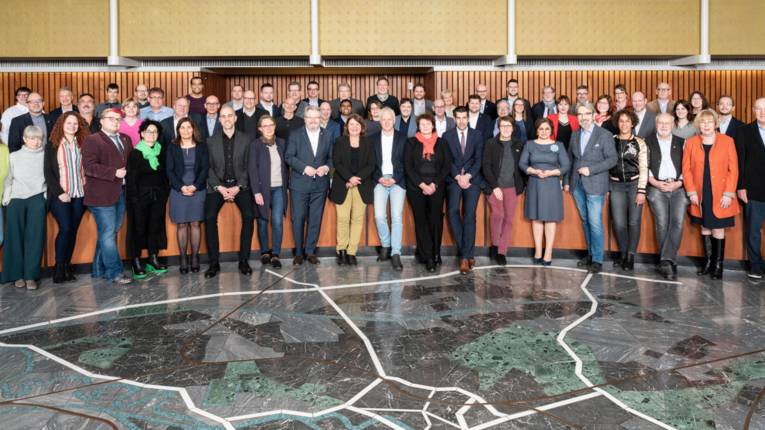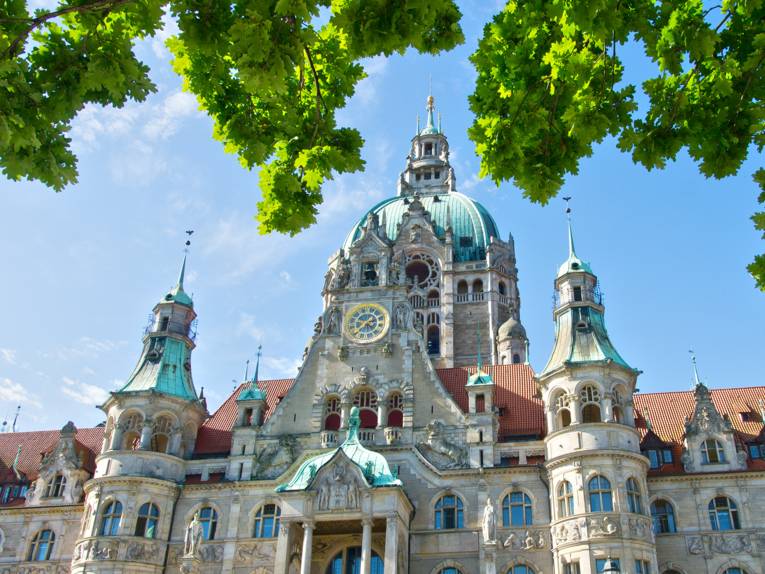State Capital Hannover
The Council
The Council is elected for five years in a general, direct, free, equal and secret vote by the citizens of Hannover – all residents who are
- of German nationality as defined by Article 116 of the Basic Law of Germany (Grundgesetz) or possess the citizenship of another member state of the European Union
- have completed their 16th year and
- have been living in the municipality for at least three months.
Passive Franchise
Normally, candidates for the Council are nominated by the political parties. To be eligible (passive franchise) a person must
- have completed their 18th year,
- been living in the municipality for at least six months and
- be German as defined by the Basic Law of Germany or have become German at least one year previously, or have held the citizenship of another member state of the European Union for at least one year.
The Number of Councillors
The number of Councillors depends on the number of citizens. Members of the Council are the 64 Aldermen and Alderwomen elected into the Council and, by virtue of office, the Lord Mayor.
The First Session of the Council after the Election
Within one month after the beginning of the legislative period, the first session of the Council must be held. In this session the Councillors, under the direction of the eldest, elect the chair(wo)man and his or her deputies from among their number. In its first session the Council also elects from among the Aldermen and Alderwomen of the Finance and General Purposes Committee (Beigeordnete) up to three honorary deputies of the Lord Mayor, who represent him by chairing sessions of the Finance and General Purposes Committee and representing the City. The Lord Mayor’s deputies receive the title Mayor or Mayoress (Bürgermeister or Bürgermeisterin).
Rules of Procedure
One of the Lord Mayor’s tasks is to invite the Council to its sessions in writing and to inform the Aldermen and Alderwomen about the agenda. The Leader of the Council chairs the proceedings within the frame of the rules of procedure the Council has given itself, and exercises the householder’s rights during Council meetings. This empowers him, for example, to expel observers who are disrupting proceedings.
Public Sessions
The sessions of the Council are public; hence anyone can be present as observers. The time, place and agenda of a Council session are announced by a bulletin in the newspapers as well as on the Internet. You will also find the dates of the Council’s sessions here:
 © LHH
© LHH
Sessions Information System of the State Capital Hannover
Database including session dates and documents of the city council, district councils, and committees
read more Deutsch
Deutsch
 English
English
 中文
中文
 Danish
Danish
 Eesti
Eesti
 Español
Español
 Suomi
Suomi
 Français
Français
 Italiano
Italiano
 日本語
日本語
 한국
한국
 Nederlands
Nederlands
 Norge
Norge
 Polski
Polski
 Portugues
Portugues
 Русский
Русский
 Svenska
Svenska
 Türkçe
Türkçe
 العربية
العربية
 Romanesc
Romanesc
 български
български
 © Timo Jaworr
© Timo Jaworr  © Landeshauptstadt Hannover - Rainer Appelt
© Landeshauptstadt Hannover - Rainer Appelt  © Landeshauptstadt Hannover
© Landeshauptstadt Hannover